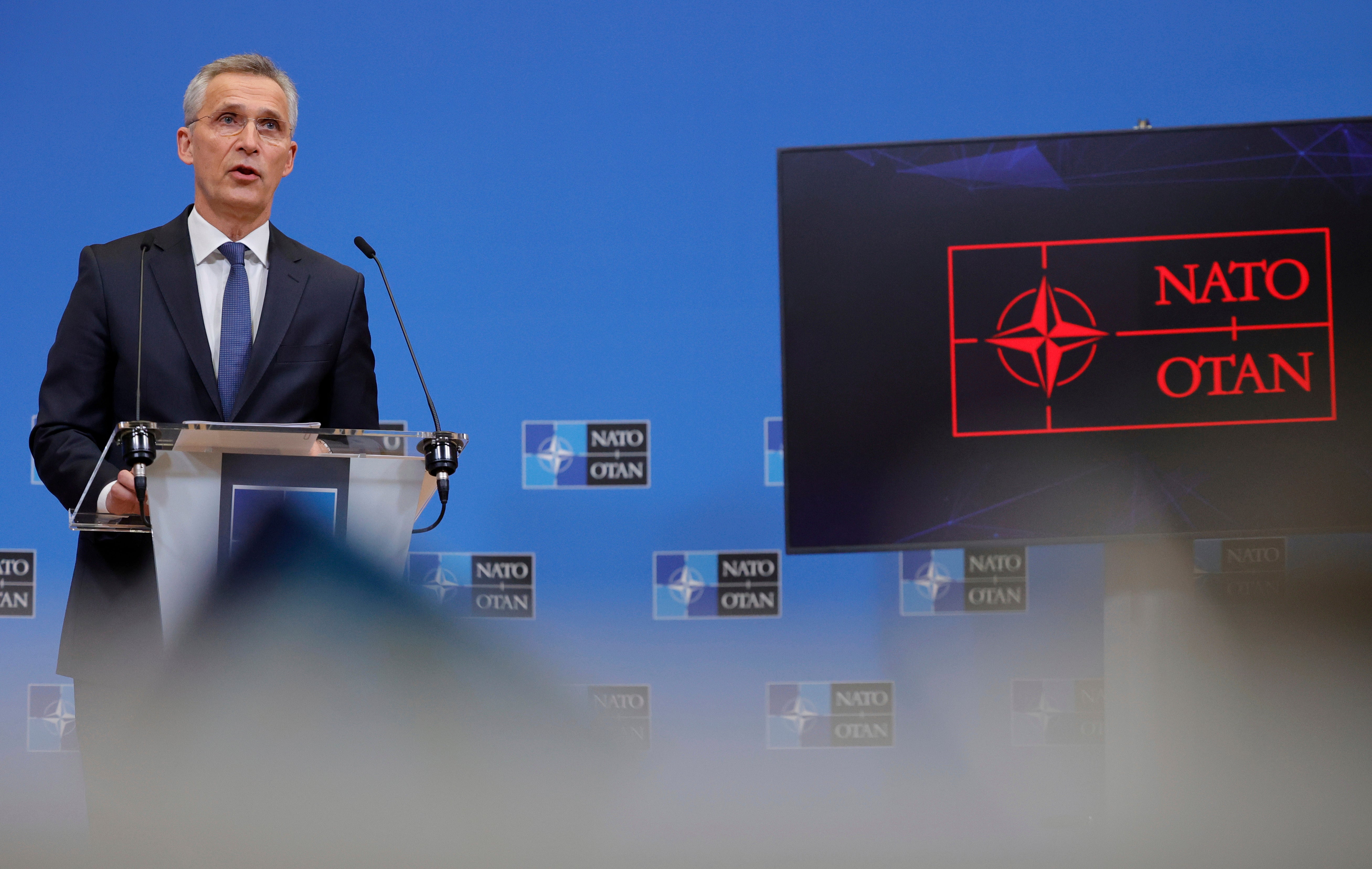NATO in emergency session as Russia attacks Ukraine
NATO envoys are meeting in emergency session after Russian President Vladimir Putin ordered a large-scale attack on Ukraine

Your support helps us to tell the story
From reproductive rights to climate change to Big Tech, The Independent is on the ground when the story is developing. Whether it's investigating the financials of Elon Musk's pro-Trump PAC or producing our latest documentary, 'The A Word', which shines a light on the American women fighting for reproductive rights, we know how important it is to parse out the facts from the messaging.
At such a critical moment in US history, we need reporters on the ground. Your donation allows us to keep sending journalists to speak to both sides of the story.
The Independent is trusted by Americans across the entire political spectrum. And unlike many other quality news outlets, we choose not to lock Americans out of our reporting and analysis with paywalls. We believe quality journalism should be available to everyone, paid for by those who can afford it.
Your support makes all the difference.NATO envoys met in emergency session Thursday after Russian President Vladimir Putin ordered a large-scale attack on Ukraine as the 30-nation military organization prepares to bolster its defenses in allies neighboring both countries. Preparations are also underway for a NATO summit.
“This is a grave breach of international law, and a serious threat to Euro-Atlantic security,” NATO Secretary-General Jens Stoltenberg said in statement. The allies are meeting, he said, “to address the consequences of Russia’s aggressive actions.”
While some member countries are supplying arms, ammunition and other equipment to Ukraine, NATO as an organization is not, and it will not launch any military action in support of Ukraine, which is a close partner but has no prospect of joining.
“We stand with the people of Ukraine at this terrible time. NATO will do all it takes to protect and defend all allies,” Stoltenberg said.
The countries closest to the conflict — Estonia, Latvia, Lithuania and Poland — have triggered rare consultations under Article 4 of NATO’s founding treaty, which can be launched when “the territorial integrity, political independence or security of any of the (NATO) parties is threatened.”
“The most effective response to Russia’s aggression is unity,” Estonian Prime Minister Kaja Kallas tweeted. “Russia’s widespread aggression is a threat to the entire world and to all NATO countries.”
Kallas called for measures “for ensuring the defense of NATO Allies.”
NATO began beefing up its defenses in northeastern Europe after Russia annexed Ukraine’s Crimean Peninsula in 2014. It has around 5,000 troops and equipment stationed there, but those forces have been beefed up with troops and equipment from several countries in recent months.
A first step now could be to activate the NATO Response Force, which can number up to 40,000 troops. A quickly deployable land brigade that is part of the NRF — made up of around 5,000 troops and run by France alongside Germany, Poland, Portugal and Spain — is already on heightened alert.
Some NATO members have also sent troops, aircraft and warships to the Black Sea region, near allies Bulgaria, Romania and Turkey. The Pentagon has also put up to 8,500 U.S. troops on heightened alert, so they will be prepared to deploy if needed to reassure other allies.
___
Jan M. Olsen in Copenhagen, Denmark, contributed to this report.